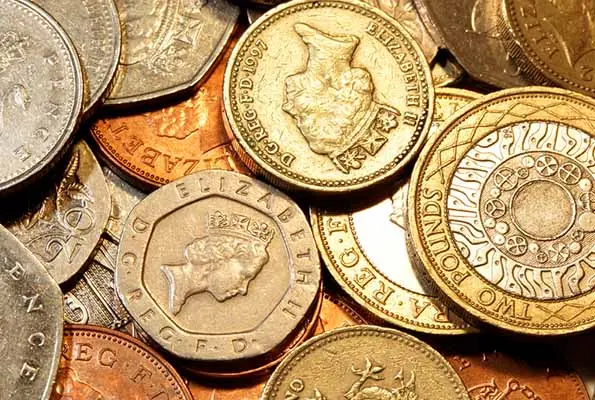The United Kingdom’s wage data attempted to depress sterling from its seven-month high, but investors are convinced that the economy will need the Bank of England to maintain higher interest rates for a longer period than its counterparts.
The recent drop in sterling to about USD 1.277 followed data showing that regular wage growth slowed somewhat more than anticipated in the three months leading up to January 2024, falling to 6.1% from 6.2%. This put the pound below its seven-month high above USD 1.285.
The employment market is still robust and the economy is recovering after entering a recession, according to sterling bulls, despite the numbers.
The expectation of higher interest rates in the United Kingdom than elsewhere has made British bond yields more appealing, which has helped the pound appreciate against the dollar. As a result, the pound is still up about 0.4% against the dollar in 2024. The Swiss franc, yen, and euro have all declined.
“Data is showing signs of improvement,” said Kamal Sharma, senior G10 FX strategist at Bank of America, who thinks the pound is likely to rise to USD 1.37 by the end of 2024.
“The labour market remains relatively robust. Real incomes have received a boost from a couple of angles: first of all headline inflation falling, and there will be a marginal kicker from the budget. We are expecting the national minimum wage to increase in April as well. So the headwinds have turned into tailwinds,” Sharma stated further.
Finance Minister Jeremy Hunt announced a further 2% reduction in the labour tax in the budget, and the UK public finance watchdog raised its growth forecasts.
Unlike autumn 2022, the budget was received calmly by financial markets, allowing investors to return their attention to the economy and the likely comparisons between Bank of England policy and that of the Federal Reserve and European Central Bank.
Wage growth is still significantly higher than what many economists believe is necessary to account for 2% inflation. Additionally, survey data suggests that the economy is starting to recover; in February 2024, private sector growth reached a nine-month high.
Meanwhile, in a breather for the Rishi Sunak government, UK GDP grew 0.2% in January 2024, the Office for National Statistics (ONS) stated, with construction output jumping more than expected. In December 2023, the GDP contracted by 0.1%, thereby resulting in a “Shallow Recession” for the European country. However, the latest ONS data suggests that if the British economy sees more activity uptick, it will come out of the recession phase.
Construction output rebounded from contraction to grow 1.1% in January 2024, but fell 0.9% over three months. The UK’s dominant services sector recorded a 0.2% rise, providing the biggest contribution to growth, as production output fell 0.2%.
“Despite recording monthly growth, GDP was estimated to have shrunk 0.3% compared with a year ago in January, and fallen 0.1% over the three months to January 2024,” stated CNBC.
Jack Meaning, chief UK economist at Barclays, while reacting to the news, stated “The figures were not a hugely positive picture, but it’s ahead of where we were at the end of last year. Industrial and manufacturing have been weak for the last few prints, you’d expect some bounce-back from that in the end. This is good to see, but we’ll have to see it on a more prolonged basis to know that it is something sustained.”
The latest figures are consistent with a forecast for a “gradual recovery in activity”, noted James Smith, developed markets economist at Dutch financial services giant ING.
“We think the decline in overall fourth quarter GDP, which marked the second consecutive quarter of negative growth and therefore a technical recession, is unlikely to be repeated in the first quarter of 2024,” Smith said in a note.



